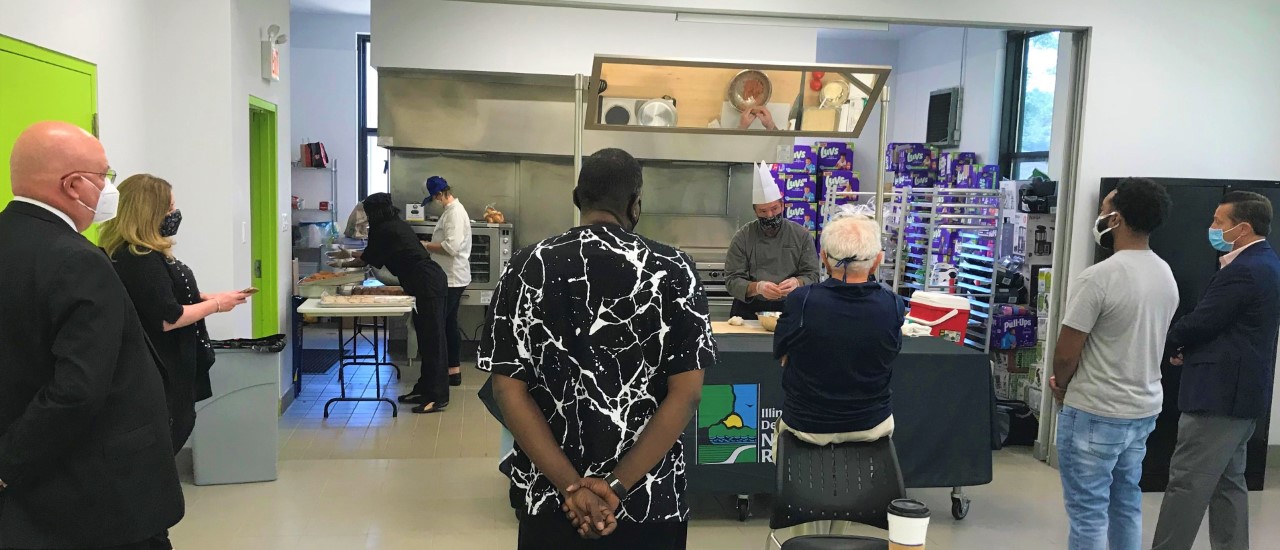- Details
- Category: News
CHICAGO — State Senator Mattie Hunter (D-Chicago) is joining advocate groups and Alderman Jeanette Taylor in calls to make the childhood home of Emmett Till a landmark on the 65th anniversary of his death.
“Emmett’s unjust death parallels many today – George Floyd, Ahmaud Arbery, Breonna Taylor, and too many others to count,” Hunter said. “Emmett received no justice for being murdered senselessly, just as others we’ve seen this year that are still waiting for justice. This is why we proclaim, ‘Black Lives Matter’ – because the justice system hasn’t shown us that they do.”
- Details
- Category: News

CHICAGO — In an effort to help local families in need, State Senator Mattie Hunter (D-Chicago) partnered with the Illinois Department of Natural Resources (IDNR), Chicago food dispensaries, and State Representative Sonya Harper (D-Chicago) to host a cooking demonstration and tasting event in the Englewood neighborhood last Friday.
“Many people are struggling to make ends meet and to feed their families during the public health crisis,” Hunter said. “I will do anything I can to help families in what may be the most challenging times of their lives.”
- Details
- Category: News
 CHICAGO – The Illinois Department of Commerce and Economic Opportunity announced Monday the opening of two new Procurement Technical Assistance Centers, which play a critical role in providing businesses with support needed to enter the world of government contracting. State Senator Mattie Hunter (D-Chicago) is celebrating the opportunities the centers will bring to the Southside.
CHICAGO – The Illinois Department of Commerce and Economic Opportunity announced Monday the opening of two new Procurement Technical Assistance Centers, which play a critical role in providing businesses with support needed to enter the world of government contracting. State Senator Mattie Hunter (D-Chicago) is celebrating the opportunities the centers will bring to the Southside.
“The world of government contracting can be difficult to break into, especially for minority business owners,” Hunter said. “The implementation of these new procurement centers will play a crucial part in equipping businesses with the support necessary to tap into this market."
- Details
- Category: News

CHICAGO – Mercy Hospital announced plans to close by May 2021 last month, and State Senator Mattie Hunter (D-Chicago) is advocating against it, saying Mercy should remain open.
“This decision could devastate our community, which is already struggling in the middle of this global pandemic,” Hunter said. “Mercy owners requested hundreds of millions of dollars just to close it down, and turn it into a clinic. But we don’t need a clinic, we need a hospital, which has the resources necessary to save lives in times of urgency and in times of severe illness.”
More Articles …
Page 61 of 126

